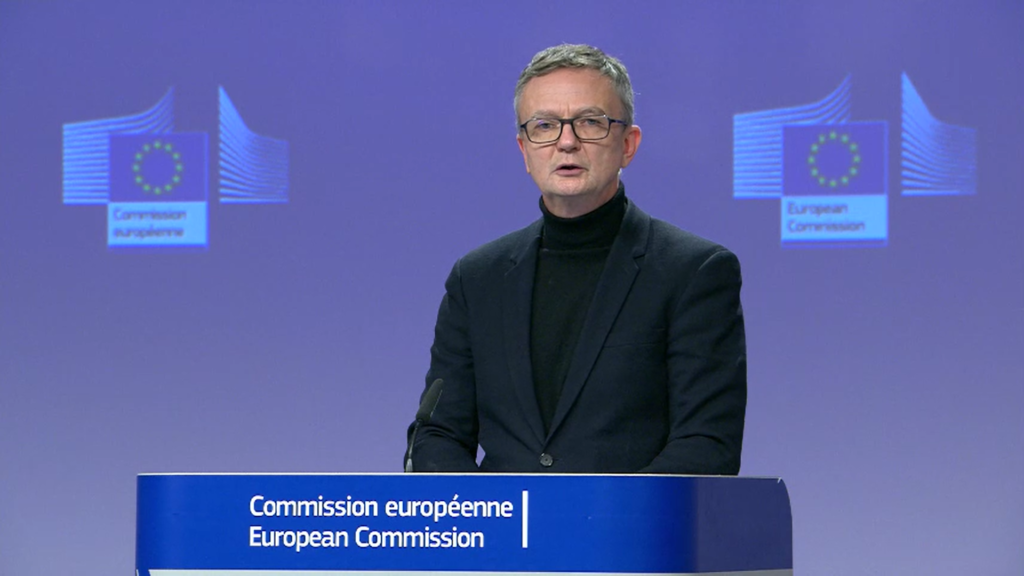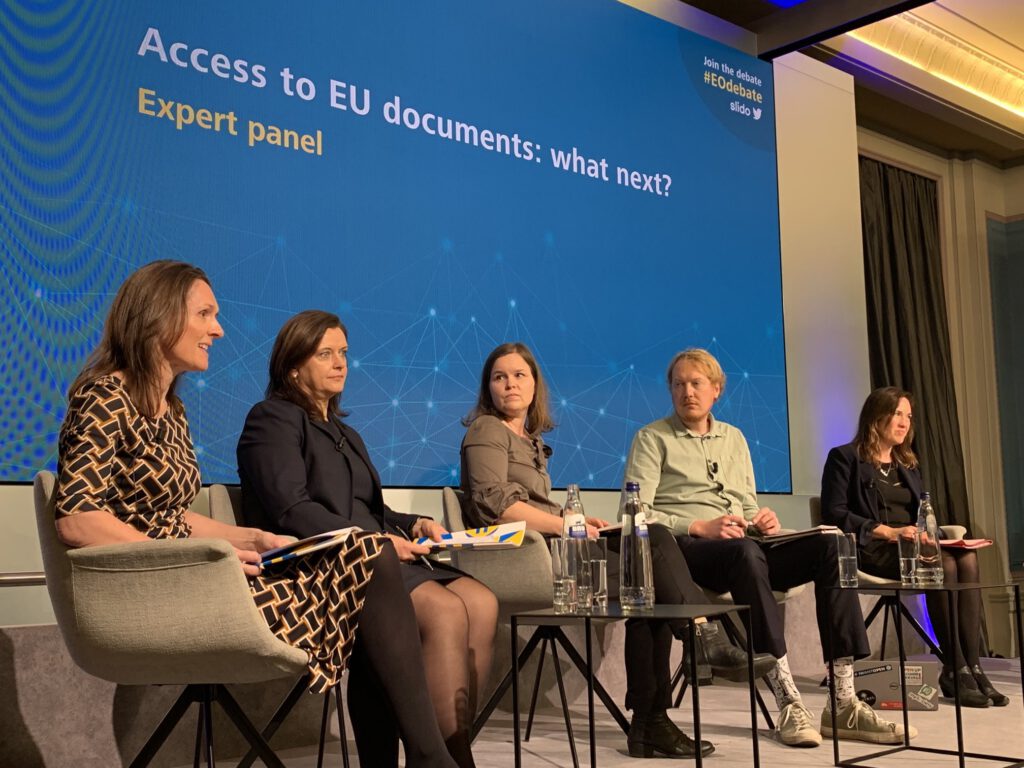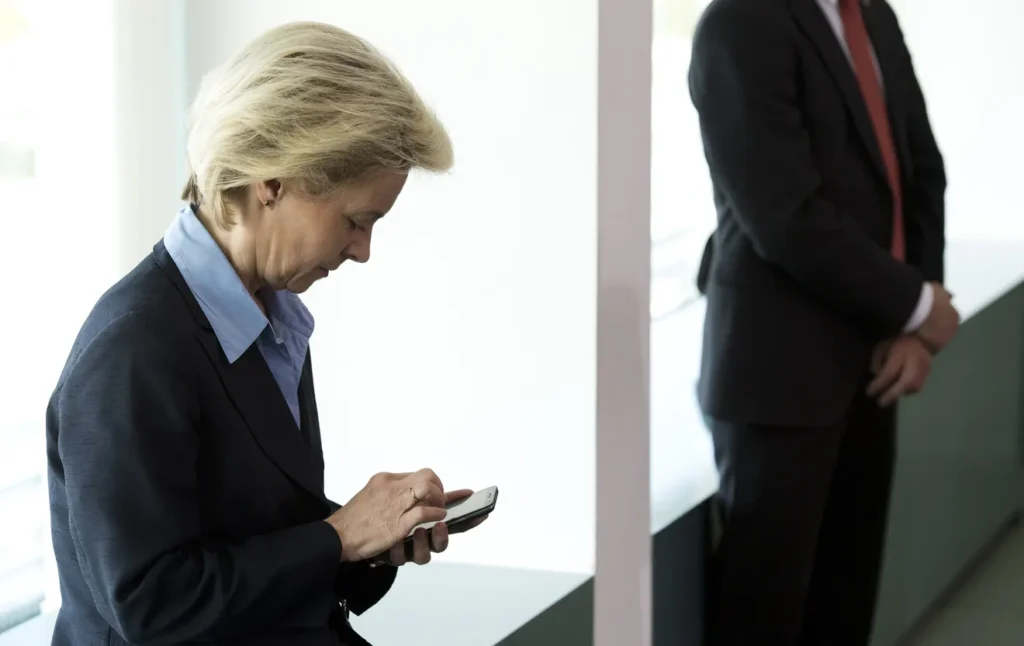How official instant messaging can be made accessible is a big question. Whether it is compatible with democracy is a bigger one, Jonathan White argues.

In April 2021, the New York Times reported that the European Union’s Covid-19 vaccine deal with Pfizer had been negotiated by a series of text messages and calls between the European Commission president, Ursula von der Leyen, and the company’s chief executive. ‘That personal diplomacy played a big role in a deal,’ said the newspaper.
This suggestion of one-to-one negotiation on a high-profile matter raised eyebrows and prompted calls for the messages to be made public. The commission refused, saying it kept no records. At the request of the European ombudsman, Emily O’Reilly, Europe’s supranational executive is reviewing its policies on what material it chooses to retain, while MEPs are suing the commission, demanding it disclose vaccine contracts.
Shifted online
Concerns about text-message diplomacy have been around for some time. What the president of the European Council sent to EU heads of state was the subject of an unsuccessful request for access in 2018.
But with the pandemic these concerns gained urgency. The suspension of face-to-face meetings meant much of the business of governing shifted online. Interactions which were previously in-person now found outlet in electronic form, at the very time the EU faced some of the biggest decisions in its history. A context of emergency meant pressure for rapid co-ordination, while the stakes and sums involved were higher than ever.
Critical discussion of government-by-text has tended to focus on access. Officials, it seems, are creating a string of important messages occluded from the public, whether because records are deleted or they are not even kept. The way to keep something secret, it appears, is to do it on WhatsApp.
These concerns about transparency are well taken: citizens should be able to scrutinise who does what, based on what reasoning. They build on longstanding concerns that important conversations are had in hallways and over dinner, where no public record is taken.
Heightened informality
But the questions raised by messaging go beyond this. More than just a matter of ex post accountability, they are about how key decisions are taken in the moment. As discussions move from physical arenas to the virtual space of the chat group, they move into a world of heightened informality and strategic inclusion and exclusion.
Unlike a physical meeting, this is a form of interaction with no set beginning or end. Lacking defined temporal boundaries, conversations begin at the initiative of one party and the technology is designed to encourage quick responses.
A recent case in Spain illustrates the risks. On March 24th 2020, as the pandemic was surging in Europe, the mayor of Madrid, José Luis Martínez-Almeida, is said to have secured agreement for medical-supply contracts in a brief WhatsApp exchange with city representatives, sometime after 1am. The deliberation could have been better: the deal involved a relative of the mayor, it was pushed through without consideration of alternatives and it was later denounced as a ‘scam’ at the city’s expense.
Even at the best of times, instant messages are short and so inevitably weak on nuance, detail and complexity. Relative to other written forms of communication, including email (where messages can be flagged for attention later), they invite accelerated interaction: participants must keep active to sustain the exchange. The spontaneous nature of instant messaging also means those involved are often being extracted from another activity—maybe a parallel conversation—or caught at an informal moment. This favours a state of distraction and a less guarded manner.
Important influence
Not everyone is texting in their pyjamas or cooking a meal at the same time and sometimes these interactions are just a preface to others in a more formal context. But insofar as they shape opinions, foster sympathies, co-ordinate positions and build asymmetries of knowledge, they are an important influence on the context in which decisions are taken. Their whole point is to build a rapport which would otherwise not exist.
Instant messaging separates the office-holder from their institution. To discuss matters by smartphone is to do so in a personalised way, detached from the supporting officials who might co-ordinate the line taken.
When the exchange takes the form of a group chat, participation may be shaped less by institutional criteria than by the preferences of those who set up the group. Awkward individuals can be left out and trusted advisors brought in. Those who might be stopped at the door in a physical setting can be ‘in the room’ in a virtual one, while absences which would be evident in-person may be more easily overlooked.
Instant messaging allows hierarchies to be bypassed and may sometimes be sought for this reason. It is a technology well suited to separating insiders from outsiders. It is less well suited to the expression of dissent and disagreement—partly due to its informal mood and partly because those likely to disagree can be screened out when the group is formed.
Blurring of boundaries
Among the predictable outcomes are ‘groupthink’ inside and factional strife with outsiders. But more generally what these technologies encourage is the blurring of boundaries—between the formal and the informal, between different institutions and between the business of government and the world beyond. Who forms part of what network can be quite opaque to those outside and not always clear to those within.
Government by instant messaging is arguably emblematic of something wider. We tend to think of EU politics as a world of dry institutions and bureaucratic logic, but recent years have seen a tendency towards the informalisation and personalisation of power. In the context of managing emergencies, power has concentrated in the hands of key individuals and the networks they form.
Decisions then tend to be taken by the few—in particular the presidents of the Brussels institutions and leaders of the big member states. This is allied to collaboration across institutional boundaries, such that ties of trust override formal roles, and reliance on personalised authority, such that emphasis falls on personal judgement, expertise and discretion. Increasing reliance on messaging technology expresses and consolidates these tendencies. And while lockdowns provided a distinctive impetus, the patterns are deeper and likely to outlive the pandemic: emergency rule builds habits which endure.
Especially vulnerable
WhatsApp government is hardly unique to the EU. Ever since the Downing Street adviser Dominic Cummings released messages from the British prime minister, Boris Johnson, referring to his health secretary as ‘totally fucking hopeless’, Britain has been revising its understanding of how the business of government is conducted. The case highlighted another implication of the technology—the potential for whistleblowing (and blackmail). Meanwhile in Germany von der Leyen, while still a defence minister in Berlin, was herself caught in a scandal to do with the transparency of her mobile-phone use.
But there are certain respects in which multi-level governance looks especially vulnerable to these methods. Complex institutional structures invite moves to bypass long chains of command and establish direct contacts among those at the apex. Reliance on consensual decision-making across a large number of actors invites the use of back channels to build agreement. And EU officials’ need for ‘output’ legitimacy—the public consent that comes from tangible results rather than sound procedures—means problem-solving is the name of the game. If instant messages help secure the deal, concerns about the method may not count for much.
One can assume messaging technology is now central to the EU’s response to crises, such as Russia’s invasion of Ukraine. The rapid introduction of sanctions over the course of a weekend in late February 2022 bears the hallmarks of this kind of decision-making. But ultimately we know very little.
All we can be certain of is that these methods tend to escape public scrutiny and aid a more personalised mode of operation. While the ombudsman’s pursuit of transparency is thus welcome, the larger question is how to ensure decisions are democratically made.
This article previously appeared on Social Europe and is reproduced here with the author’s and website’s kind permission.
Jonathan White is professor of politics at the London School of Economics. Books include Politics of Last Resort: Governing by Emergency in the European Union (Oxford University Press, 2019), The Meaning of Partisanship (with Lea Ypi, Oxford University Press, 2016) and Political Allegiance after European Integration (Palgrave Macmillan, 2011).





